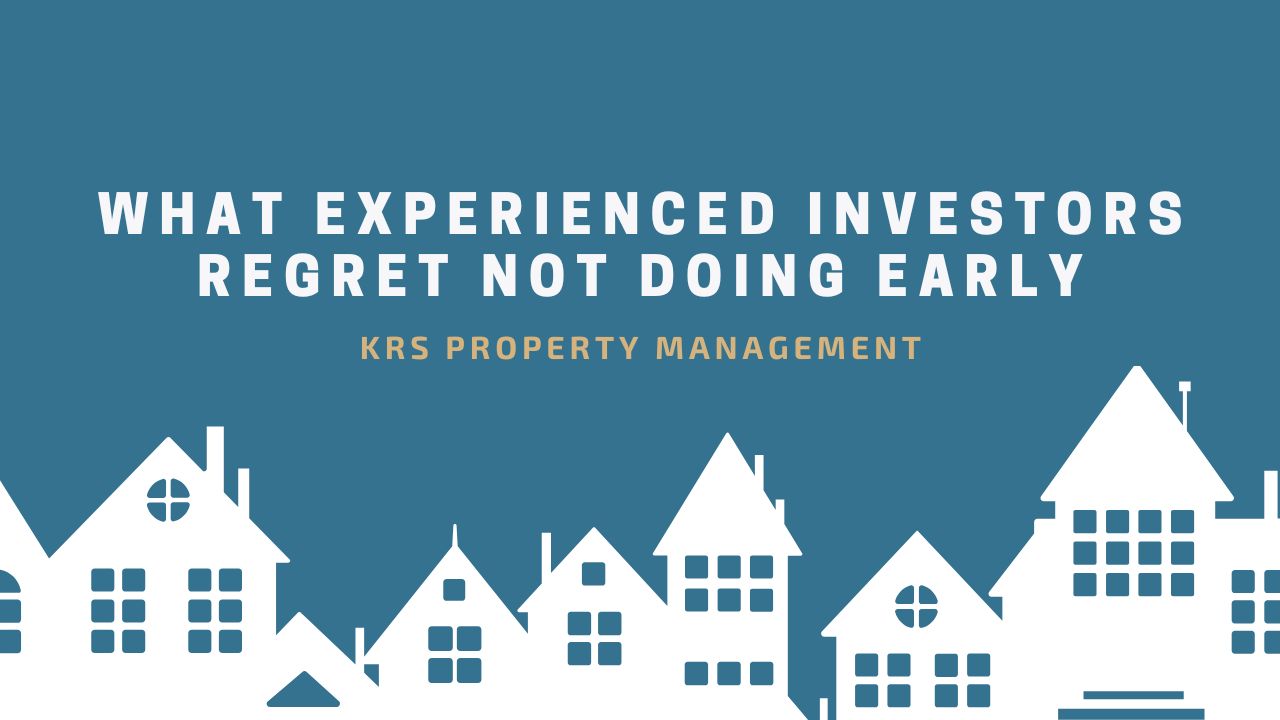
Key Takeaways
Early Decisions Shape Long-Term Profitability: Seasoned investors often regret overlooking true ownership costs, rushing tenant screening, or relying on weak lease mistakes that can quickly affect returns.
Strong Systems Prevent Costly Problems: Clear processes for screening, documentation, maintenance, and communication help protect your investment and reduce avoidable stress.
Knowing When to Get Professional Help Matters: Many investors wish they had hired a property manager sooner to streamline operations, improve tenant satisfaction, and support long-term portfolio growth.
On paper, being a landlord seems straightforward, buy a property, find tenants, and collect rent. In reality, it’s a juggling act that requires patience, organization, and strategy. From navigating tenant issues to staying on top of maintenance and financial planning, there’s always something competing for your attention.
If you’re new to rental ownership, learning from common missteps can save you stress and protect your investment. Below are timeless lessons from the experts at KRS Holdings to help you build a solid foundation and set yourself up for long-term success as a property owner.
Understand the True Cost of Ownership
Many new landlords focus only on mortgage payments and underestimate the hidden expenses that reduce profit margins. Taxes, rental insurance, maintenance, vacancies, and turnover costs can add up faster than expected.
Before purchasing, build a comprehensive cash flow model that includes every potential expense, from landscaping to seasonal HVAC servicing. Understanding your full cost structure helps you price rent strategically, protect cash reserves, and avoid unpleasant financial surprises.
Small fluctuations in market demand or repair costs can quickly eat into your bottom line. Anticipating these shifts early helps you stay flexible and maintain healthy profit margins.
Create an Airtight Lease Agreement
Verbal promises and handshake deals often lead to misunderstandings. A well-written lease protects both landlord and tenant by outlining rent terms, payment dates, maintenance responsibilities, and house rules in detail.

Use clear, professional language and review your lease annually to ensure it complies with current housing laws. When expectations are explicit, you reduce disputes and maintain a professional relationship built on clarity and respect.
An updated lease agreement also reinforces your professionalism and helps tenants understand their rights and duties. It builds mutual accountability and trust, which is the foundation of any strong rental arrangement.
Never Rush the Tenant Screening Process
The quality of your tenants determines the quality of your rental experience. Poor screening can lead to late payments, damage, or costly evictions.
Take the time to verify income, run background checks, and contact previous landlords. A few extra days spent evaluating applicants can save you months of financial and emotional strain down the road.
Screening carefully also improves your community’s atmosphere and helps attract tenants who value stability. Good tenants make your property easier to manage and keep occupancy consistent.
Choose Your Partnerships Wisely
While sharing responsibilities sounds appealing, partnerships can complicate decision-making and strain relationships if values or goals differ. Every repair, sale, or upgrade requires mutual agreement, which can slow progress.
If you choose to collaborate, draft a written partnership agreement that defines financial contributions, authority levels, and exit plans. Strong communication and documented boundaries ensure your business remains stable and fair.

The best partnerships balance complementary skills and mutual respect. When both parties share the same long-term property vision, growth becomes smoother and conflicts are minimized.
Know When to Bring in a Property Manager
As your portfolio grows, so do the demands. From handling tenant calls to coordinating repairs, managing multiple rentals can easily become a full-time job.
Hiring a property manager allows you to delegate routine tasks and focus on scaling your business or pursuing new investments. The right management partner increases efficiency, tenant satisfaction, and long-term profitability.
Even seasoned landlords benefit from professional oversight. A good manager brings market insight, reliable vendor connections, and experience handling legal and tenant issues.
In addition, a trustworthy property manager doesn’t just maintain your rentals, they help elevate your portfolio by ensuring operations run smoothly and your properties remain competitive in the market.
Build Lasting Relationships With Tenants
Happy tenants are long-term tenants, and long-term tenants mean consistent income. Building rapport through transparency, reliability, and empathy goes a long way.
Check in periodically, communicate openly about updates or repairs, and show appreciation for prompt payments. A tenant who feels valued is far more likely to care for your property and renew their lease year after year.
Trust takes time, but the payoff is loyalty and fewer vacancies. When tenants view you as approachable and fair, they’re more willing to cooperate during challenges.
Prioritize Preventive Maintenance
Proactive preventative maintenance preserves property value and prevents costly emergencies. Waiting until something breaks often results in higher repair bills and tenant frustration.

Schedule regular inspections, address small issues immediately, and keep detailed maintenance records. This diligence not only protects your asset but also signals professionalism to your tenants.
A well-maintained property also photographs better and attracts higher-quality renters. Think of maintenance as marketing, it directly impacts your property’s reputation and appeal.
Keep Meticulous Records
Accurate documentation is one of the least glamorous yet most powerful tools for landlords. Receipts, leases, inspection reports, and communication logs all serve as essential proof in case of disputes.
Digital recordkeeping also simplifies tax filing and ensures compliance with local regulations. Treat your property like a business, because it is one, and good data keeps it running smoothly.
Organized records also help you evaluate long-term ROI. With clear data, you can identify which properties or tenants yield the best returns and adjust strategy accordingly.
Bottom Line
Mistakes are inevitable when you’re just starting out as a landlord but what matters most is how you respond to them.
Each challenge is an opportunity to sharpen your strategy, improve your systems, and grow more confident in your role. With time, patience, and the right support, you won’t just manage properties you’ll build long-term value and stability.
At KRS Holdings, we make rental ownership effortless. From tenant screening and maintenance coordination to rent collection and legal compliance, our team handles the details so you can focus on scaling your portfolio with peace of mind.
Reach out today to schedule your free consultation and learn how professional property management can help you save time, protect your investment, and maximize your rental income.






